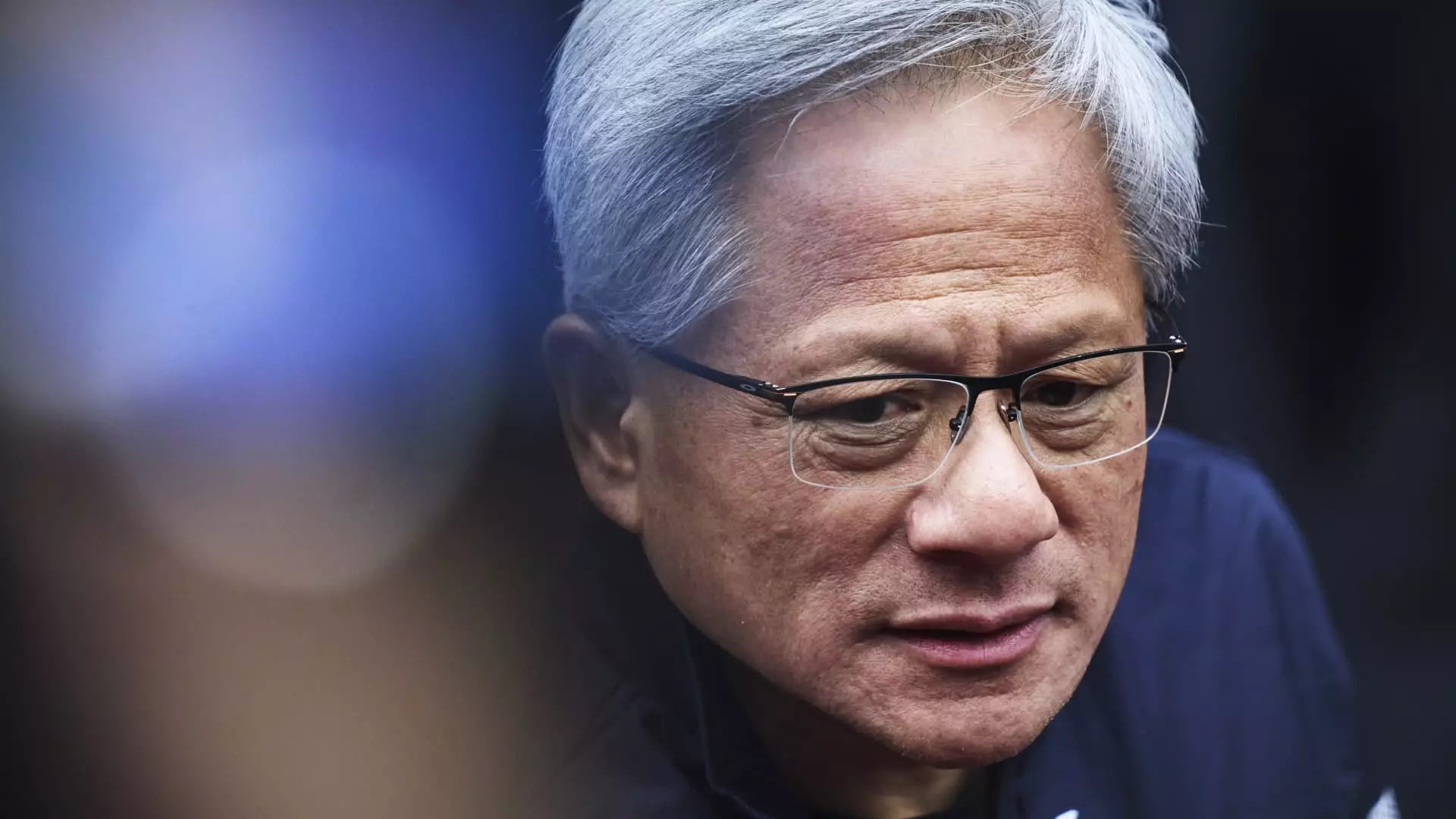In an increasingly competitive global landscape, Nvidia CEO Jensen Huang’s meeting with President Donald Trump in Washington D.C. signals a pivotal moment for U.S. artificial intelligence policy and semiconductor production. With the artificial intelligence sector gaining unprecedented importance and traction, discussions surrounding technology regulations and manufacturing strategies have never been more critical. The meeting is anticipated to explore not only America’s positioning in the AI domain but also the significant hurdles that Nvidia faces in its operations, particularly with respect to international trade.
While the specifics of their discussions have yet to be disclosed, sources indicate that a focus will be placed on U.S. policy concerning artificial intelligence, especially in context with China’s burgeoning AI capabilities, exemplified by entities like DeepSeek. Huang and Trump’s potential rapport could pave the way for a more unified strategy, addressing national security implications and technological superiority over rival nations.
Changing Dynamics: Technology Leaders and Political Alliances
The political landscape has evolved noticeably since Trump’s first term, with various tech leaders becoming increasingly amenable to alliances with the administration. This evolution in dynamics has brought significant figures such as Jeff Bezos of Amazon, Sundar Pichai of Google, and Tim Cook of Apple into closer discussions with the Trump administration, particularly evidenced by their presence at the recent inauguration.
However, Huang’s interaction with Trump marks a unique new beginning; it is their first meeting post the president’s inauguration for a second term. The growing alliance between technology CEOs and political leaders indicates a shift where influential figures in the tech industry wield substantial power over national policy discussions.
Nvidia’s ascent as the third most-valuable company in the U.S. is not without its share of regulatory challenges, especially regarding the export of its high-performance AI chips. Currently, strict U.S. limitations prevent the export of Nvidia’s advanced chips to nations such as China and Russia, complicating international demand and market strategies. The White House’s ongoing evaluation of chip restrictions and the potential impact of these discussions cannot be understated, as the technology sector urgently pushes for clarity and support for maintaining competitiveness.
The looming ‘diffusion rule’, which was introduced in the waning days of the Biden administration, has sparked numerous concerns from tech giants like Nvidia and AMD due to its restrictive nature on chip sales overseas. This policy could significantly diminish the landscape of international collaboration and trade. With Trump’s authority to potentially reverse these decisions, Huang’s advocacy during their meeting will be crucial for fostering an environment conducive to innovation and growth for the semiconductor industry.
Investment strategies surrounding chip production in the United States are also set to be prominent discussion points. Focus on revamping the defunct CHIPS Act from the previous administration suggests that there might be strong initiatives to encourage domestic manufacturing of semiconductors. The importance of encouraging companies such as Intel and Taiwan Semiconductor Manufacturing Company (TSMC) to establish new fabrication facilities on U.S. soil cannot be overstated, especially in light of shifting global manufacturing dependencies.
While many of Nvidia’s advanced chips are produced through TSMC’s state-of-the-art facilities in Taiwan, bolstering U.S. manufacturing capabilities would not only boost local economies but also enhance national security by reducing reliance on foreign suppliers. In conversing with Trump, Huang could advocate for measures that attract investment, thereby fortifying the U.S. semiconductor supply chain in light of evolving geopolitical tensions.
The forthcoming meeting between Jensen Huang and Donald Trump encapsulates a critical juncture in navigating the intricate relationship between technology, policy, and national interests. As Nvidia grapples with regulatory challenges and global competition, the exchange of ideas and strategies with the Trump administration could provide the necessary foundation for future advancements in artificial intelligence and chip manufacturing. Given the stakes involved, this dialogue is poised to shape not only the future of Nvidia but also the broader technological landscape of the United States amidst fierce international competition.


Leave a Reply